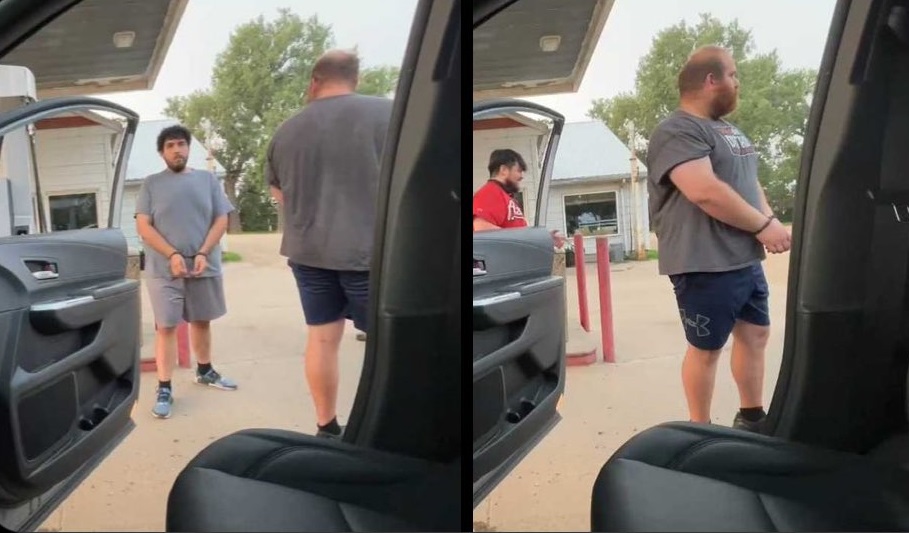In a highly publicized and contentious case, Alex Rosen, the founder of the Houston-based vigilante organization Predator Poachers, along with his team, has been arrested following a tragic incident that resulted in the death of an accused pedophile. The incident, which has sparked a fierce public debate, underscores the profound ethical and legal issues surrounding vigilante justice.
The Predator Poachers are notorious for their aggressive and controversial methods of exposing individuals suspected of engaging in inappropriate behavior with minors. Their approach involves posing as underage individuals online to lure potential predators into conversations or meetings, which are then recorded and disseminated publicly through live streams and social media posts. While their intent is to protect minors from exploitation, their tactics have been widely criticized for lacking due process and for potentially causing significant harm to the accused individuals.
The recent arrest of Rosen and his team is linked to a particularly tragic event that unfolded during one of their live-streamed confrontations. The accused, a man targeted by the Predator Poachers for allegedly engaging in inappropriate conversations with a minor, was publicly shamed and humiliated during the live stream. Overwhelmed by the intense scrutiny and the pressure of the confrontation, the man reportedly took his own life by a self-inflicted gunshot wound.
This incident has brought to light the grave consequences that can arise from such unregulated vigilantism. Critics of the Predator Poachers argue that their methods, which bypass legal protocols and often involve public shaming, can inflict severe psychological distress on the individuals they target. In this case, the actions of Rosen and his team not only led to a tragic death but also raised significant concerns about the ethical implications of their approach.
In response to the incident, law enforcement agencies have charged Rosen and his team with various offenses related to their methods of operation. These charges highlight the potential legal ramifications for individuals and groups who take justice into their own hands without adhering to established legal processes. The charges include harassment, endangerment, and unauthorized recording and dissemination of private communications.
The arrest has sparked a wider discussion about the balance between protecting vulnerable populations, such as minors, from exploitation and ensuring that accused individuals are treated fairly and humanely under the law. Legal experts and child protection advocates emphasize the importance of due process and the rule of law in safeguarding the rights of all individuals, including those accused of serious crimes.
The tragic death of the accused man has also prompted calls for more structured and legally sanctioned approaches to addressing crimes involving minors. Many argue that vigilante groups like the Predator Poachers, despite their intentions, lack the necessary training, oversight, and legal authority to handle such sensitive matters appropriately. They stress the need for professional law enforcement agencies to take the lead in investigating and prosecuting these cases to ensure that justice is served in a manner that respects the rights and dignity of all parties involved.
As the investigation into the actions of Rosen and his team continues, the broader community is grappling with the implications of this case. Supporters of the Predator Poachers argue that their work has helped to expose and deter potential predators, thereby protecting children from harm. However, the tragic outcome of this particular incident serves as a stark reminder of the potential dangers associated with taking the law into one’s own hands.
The identity of the man who died has not been released, respecting the privacy and mourning of his family. The man’s death is a somber illustration of the potential human cost of unregulated vigilantism. It underscores the critical need for a balanced approach that combines effective law enforcement with compassionate consideration of the rights and well-being of all individuals involved.
In the wake of this incident, community leaders and policymakers are being urged to develop more comprehensive strategies for addressing online predation and protecting minors. These strategies should include robust support for professional law enforcement agencies, increased public awareness and education about the risks of online interactions, and the implementation of preventative measures that do not infringe on the rights of the accused.
The case of Alex Rosen and the Predator Poachers serves as a powerful reminder of the complexities and responsibilities inherent in the pursuit of justice. It challenges society to reflect on the ethical boundaries of vigilante actions and to strive for solutions that uphold the principles of fairness, legality, and human dignity. The obituary for the deceased will be released by his family at a later date, as they grieve their loss in private.
